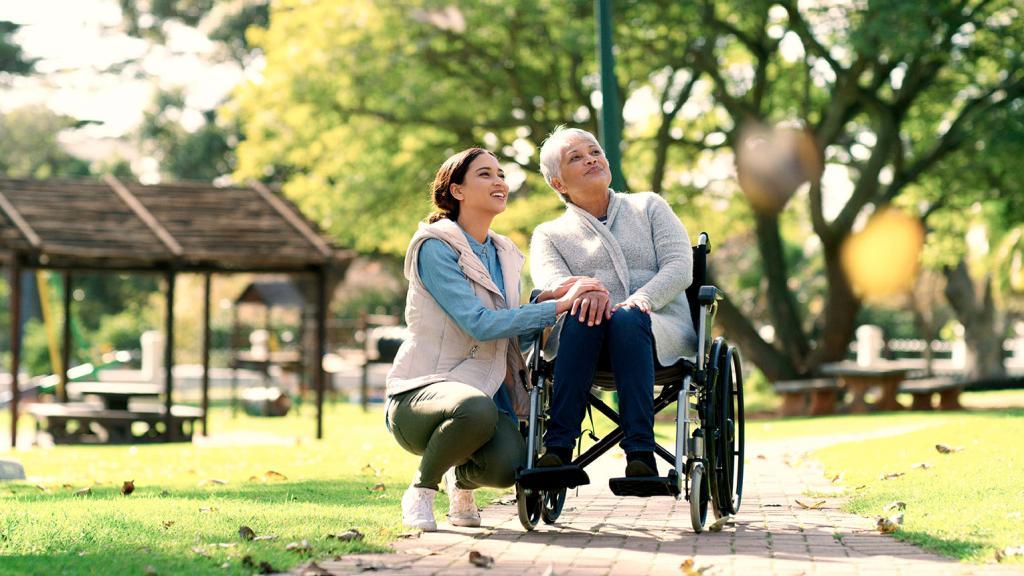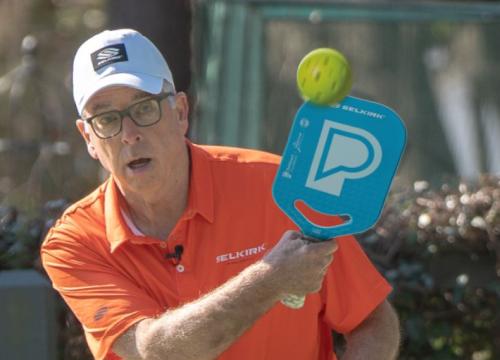Staying Healthy as a Care Partner

Being a care partner for a loved one can be meaningful, but the stress of this role can be exhausting as well. Finding the time and energy to take care of yourself while being a care partner is difficult, but it is important to be intentional with your own physical and mental health.
During the Parkinson’s Foundation Care Partner Program: Staying Healthy as a Care Partner, Amy Goyer, AARP’s Family and Caregiving Expert, answered the most common questions about staying healthy while also being a care partner to a person with Parkinson’s disease (PD).
Why is it important for care partners to stay healthy?
It can be easy to ignore your needs while being a care partner, but your needs are just as important as your loved one’s needs. Care partners often prioritize those who need care over themselves. This can result in caregiver burnout.
Like a car, we cannot run on empty. You have to keep putting gas in your car, it is not a one-time thing. The same is true for yourself — you are going to run out of energy if you do not make time to care for yourself. Self-care is necessary to caring for your loved one and staying healthy. Remember that healthy habits sustain us.
You and your loved one are on the same team. As a team you are taking care of them and taking care of you. Be honest and discuss your needs, together.
What role can support groups play in helping care partners share their feelings?
A support group is a safe place for care partners and loved ones. This is a great opportunity to express your feelings and process through your journey. You should look for a support group that fits your needs and personality. Tips to find a support group:
- Call the Parkinson’s Foundation Helpline at 1-800-4PD-INFO (1-800-473-4636) to find a support group in your area.
- Ask your loved one’s neurologist or specialists for support group recommendations.
- Utilize the Parkinson’s Foundation In Your Area search.
- Ask your questions in the online forum, PD Conversations.
Once you have found a potential support group, reach out to the support group leader to discuss what to expect within the group.
What can care partners do on a daily basis to ensure their loved one’s ongoing needs are met, without derailing their day?
There needs to be an expectation for interruptions. As a care partner, you have to prepare for change. is vital to nurture your own ability to be flexible and expect the unexpected. Flexibility will mean these interruptions do not feel as unsettling, but rather every interruption is an obstacle that can be worked out. You should also get more help as your loved one’s needs increase, so you can continue to live your life.
Your self-care routine and time are important. Many care partners view their self-care routine as not necessary, but self-care is key to having a healthy lifestyle. Everyone’s self-care routine and timing are unique, but just because your loved one’s needs may be increasing, does not mean your needs are decreasing. There will be times when your routine is interrupted, but it is important to return to your self-care routine and prioritize your needs.
How can care partners regularly assess their mental health to ensure they are getting the support that they need?
It is important to regularly assess your mental health. Oftentimes care partners can experience guilt when taking time for themselves. Guilt is a natural emotion, but it is not something you have to carry on your own. Here are some ways to check-in on your mental health and find support:
- Reach out to friends and family.
- Meet with a mental health professional on a consistent basis.
- Journal to process your experiences.
- Practice mindfulness to ease stress and expand your perspective.
- Participate in our PD Health @ Home events.
It can be difficult to maintain a healthy lifestyle as a care partner, but you are not alone in this journey. The Parkinson’s Foundation has many resources to help you as a care partner, and we want to help you find what works best for you.
Sign up for self-paced courses today through our Care Partner Program.
Related Blog Posts

Treating Sleep Apnea May Lower Parkinson’s Risk

10 Tips for Playing Pickleball to Stay Active with Parkinson’s
